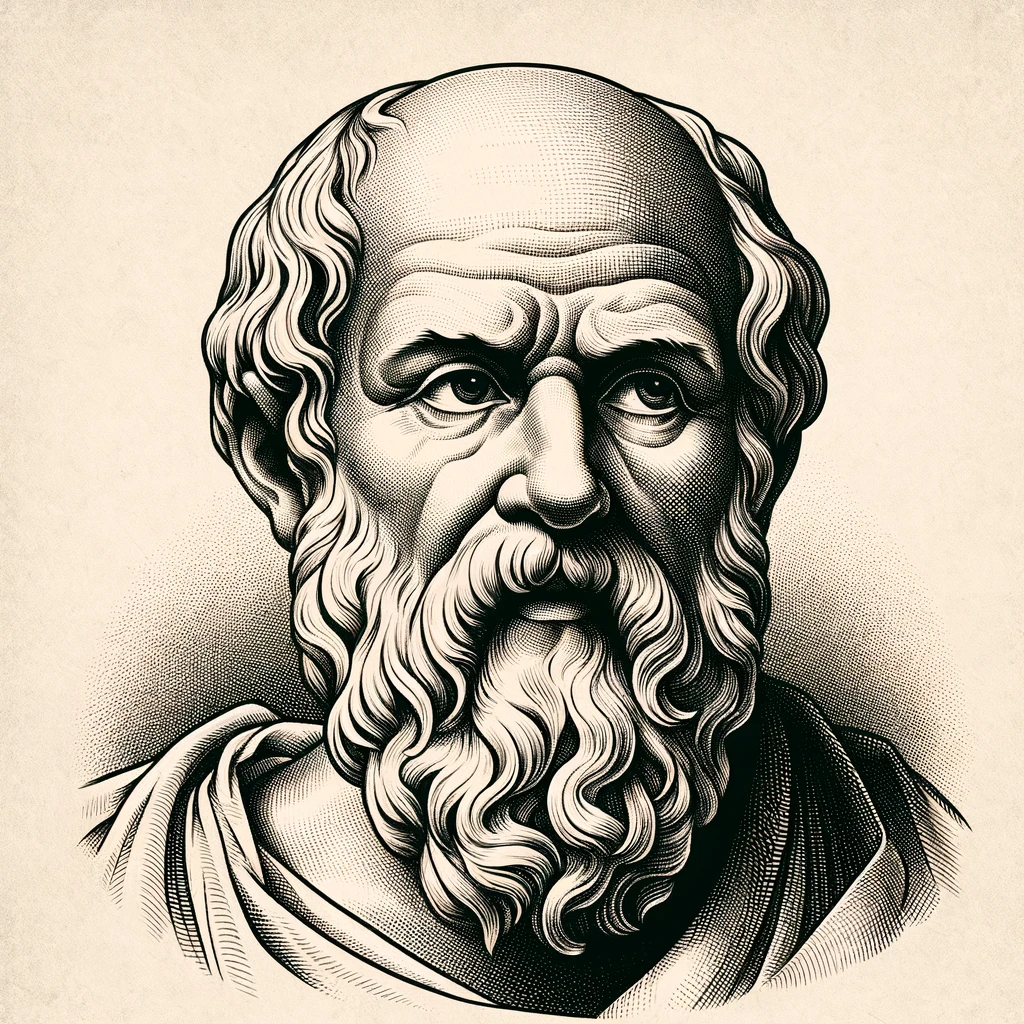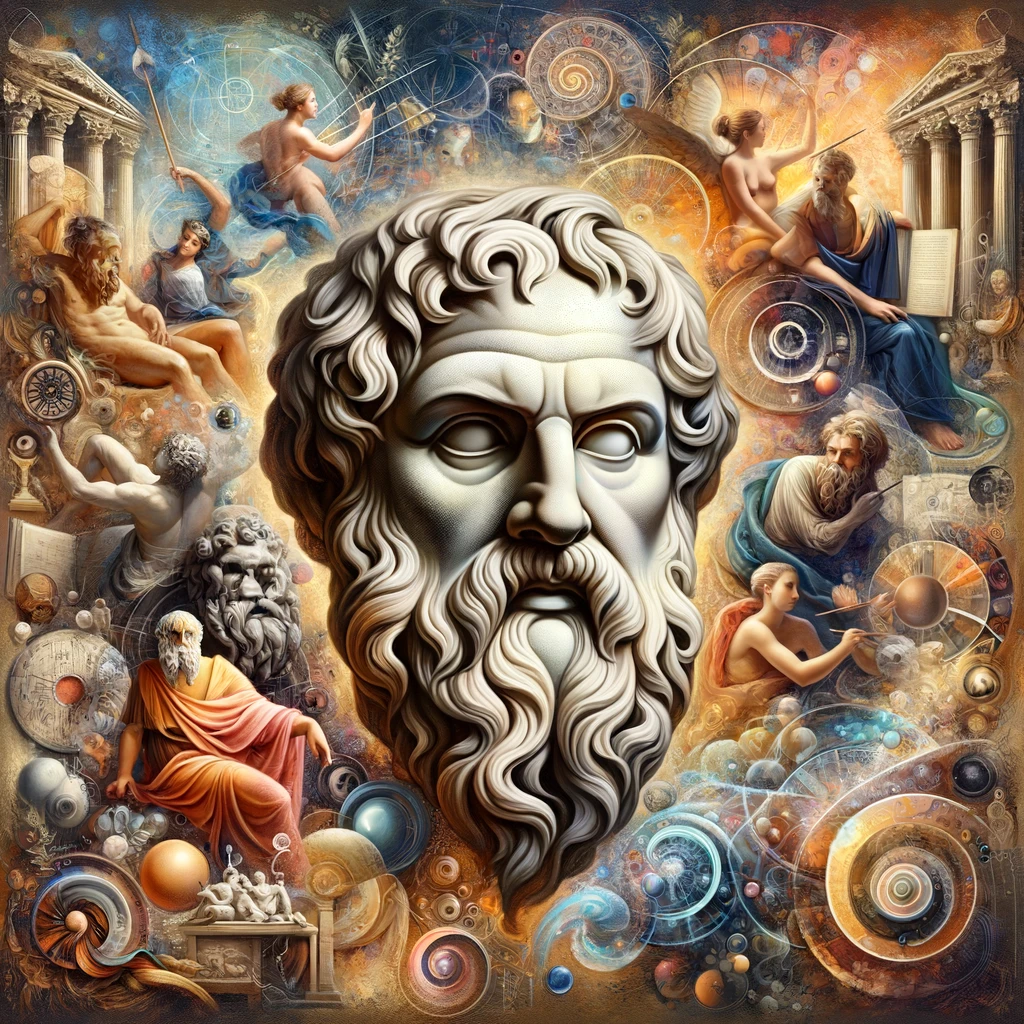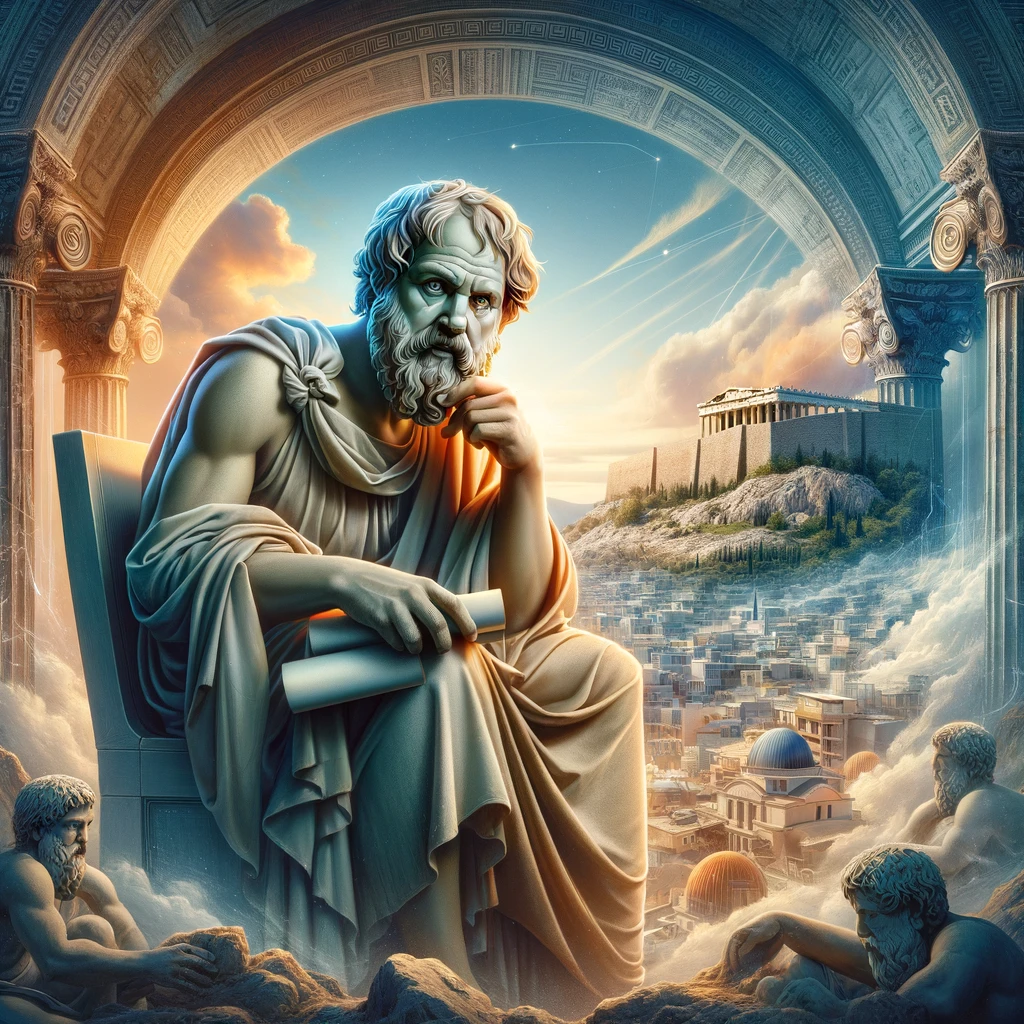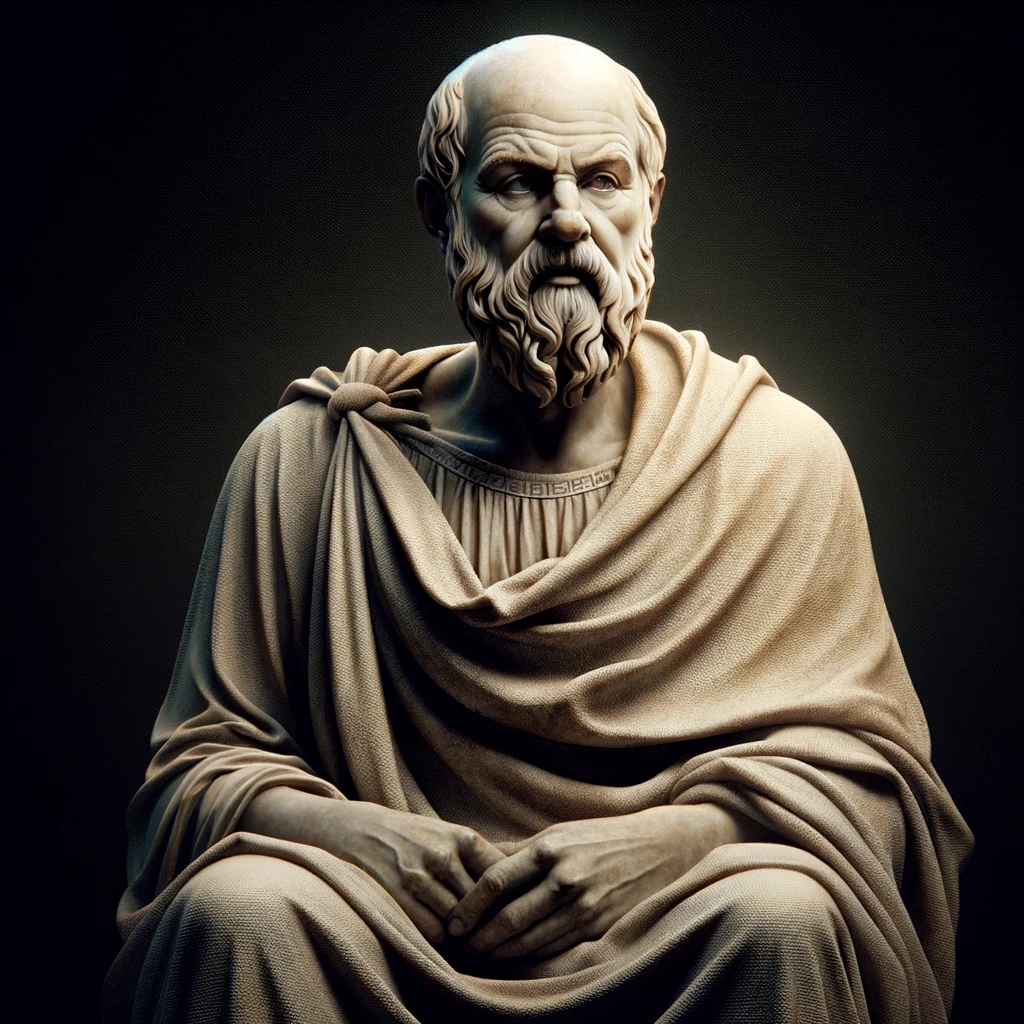In the bustling streets of ancient Athens, amidst the rise and fall of empires and the endless quest for knowledge, one figure stands out as the cornerstone of Western philosophy: Socrates. Unlike the scribes and scholars who came before him, Socrates embarked on a unique philosophical journey, one that would forever change the course of intellectual history. This post explores the dawn of Socrates’ dialogue with the world, his transition into philosophy, key influences, and his deliberate shift from the common pursuits of his time.
The Early Life of Socrates
Born in Athens around 470 BC, Socrates’ early life was steeped in the richness of Athenian culture and the flourishing ideas of the time. However, little did the city know that this son of a stonemason and a midwife would grow to challenge the very foundations of Athenian beliefs and practices. Socrates’ turn to philosophy wasn’t immediate. Initially, he followed the path expected of him, engaging in the arts and even serving with distinction in the military during the Peloponnesian War. Yet, it was his insatiable quest for truth and virtue that propelled him towards a different calling.
A Shift from Conventional Pursuits
The Athens of Socrates’ time was a hub of intellectual activity, with sophists and thinkers of all kinds debating in the agoras and symposiums. Unlike his contemporaries, who sought fame and fortune through their rhetoric and knowledge, Socrates chose a path less traveled. He questioned the very essence of wisdom, virtue, and the good life, concerns that were not adequately addressed by the pursuits common to the Athenians of his era. This marked the beginning of his philosophical quest—a journey characterized by dialogue and inquiry.
Key Influences on Socrates
Socrates did not arrive at his philosophical stance in isolation. The influence of pre-Socratic thinkers, who questioned the nature of the universe and the essence of being, played a crucial role in shaping his thought. Moreover, his encounters with the Sophists, who were adept at using rhetoric but often lacked depth in their understanding of ethics and morality, further pushed him towards developing a method of inquiry that sought to uncover the truth beneath the surface of conventional wisdom.
The Socratic Method: A New Approach to Philosophy
Socrates’ turn to philosophy is best encapsulated in his development of the Socratic Method—a technique of asking probing questions to challenge assumptions and encourage deep reflection. This method was revolutionary, not only in its approach to knowledge and wisdom but also in its democratic essence. Socrates engaged with citizens from all walks of life, believing that everyone had the capacity for philosophical thought.
The Legacy of Socrates’ Philosophical Journey
Socrates’ transition into philosophy was not without its challenges. His relentless questioning and the discomfort it caused among the powerful led to his trial and eventual execution. However, his legacy endures through the works of his students, most notably Plato, and the countless generations of philosophers who have followed in his footsteps. Socrates’ turn to philosophy, characterized by the dawn of dialogue, continues to inspire those who seek to understand the world through reasoned inquiry and open discussion.
The journey of Socrates from a citizen of Athens to the father of Western philosophy is a testament to the power of questioning and the relentless pursuit of truth. His shift from the common pursuits of his time towards a life of philosophical dialogue not only marked the dawn of a new era in thinking but also laid the foundation for the development of Western philosophical thought. As we navigate the complexities of the modern world, Socrates’ life and work remain a beacon of wisdom, challenging us to engage in dialogue and seek understanding through reason.









